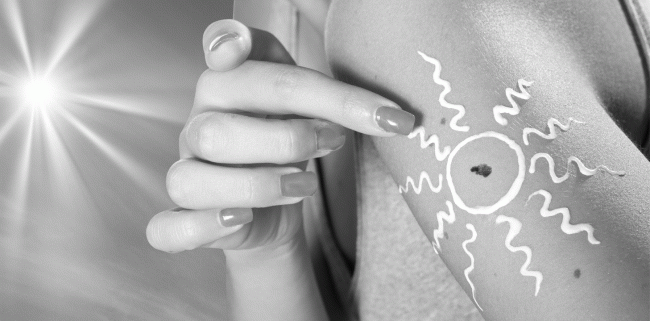Archives
Stay up-to-date and on top of your health with our e-Newsletter and receive updates on current treatments and vital health issues.
Intelligent Skin Cancer Screening

This holiday season, many Australians are headed to the beach to escape the summer heat. However, long, sun-filled days lazing by the water often also mean overexposure to dangerous ultraviolet (UV) rays.
Australia unfortunately boasts the highest incidence of skin cancer in the world. So common is the disease that it is often referred to as our ‘national cancer’. It is estimated two in three Australians will be diagnosed with some form of the disease, including basal cell carcinoma, squamous cell carcinoma and melanoma, the least common but most dangerous form of skin cancer. The good news is that skin cancer is almost 100% curable when detected early so it’s important to familiarise yourself with your skin and consult your GP if you spot anything unusual. You can also easily and effectively minimise your risk of skin cancer by following the basic principles of slip, slop, slap seek and slide –
• SLIP on sun-protective clothing,
• SLOP on a broad-spectrum, water resistant sunscreen (SPF of 30 or higher),
• SLAP on a hat that provides good coverage of the face, head, neck and ears,
• SEEK shade and
• SLIDE on some sunglasses.
At Airlie Women’s Clinic, our Skinscope programme offers more accurate diagnosis of skin cancers than traditional means. The specially designed software allows us to take highly magnified images of your skin spots and track even the smallest of changes. The advantage of this is that the sooner a skin cancer is identified and treated, the better your chances of avoiding unnecessary surgery, saving you potential scarring, disfigurement or even death. Our skin checks are performed by qualified GPs who have had additional training in dermoscopy and skin cancer medicine, as well as minor skin procedures.
Your Skinscope visit will involve thorough history taking and a personal skin cancer risk assessment, a comprehensive, head-to-toe skin exam, as well as digital photography and computer analysis of irregular moles or lesions, with all images saved on file for future comparison. If need be, we can also treat skin cancers and/or abnormal lesions on the spot, either by freezing (cryotherapy), biopsy or surgical excision. Our doctors will also provide advice on how to perform at-home skin checks, skin cancer prevention and early detection.
So, for the best insurance against skin cancer, protect your skin daily, examine yourself regularly and see your doctor at least once a year for a complete skin check or at the first sight of any changes. After all, don’t you want to look back on those summer days with fond memories?